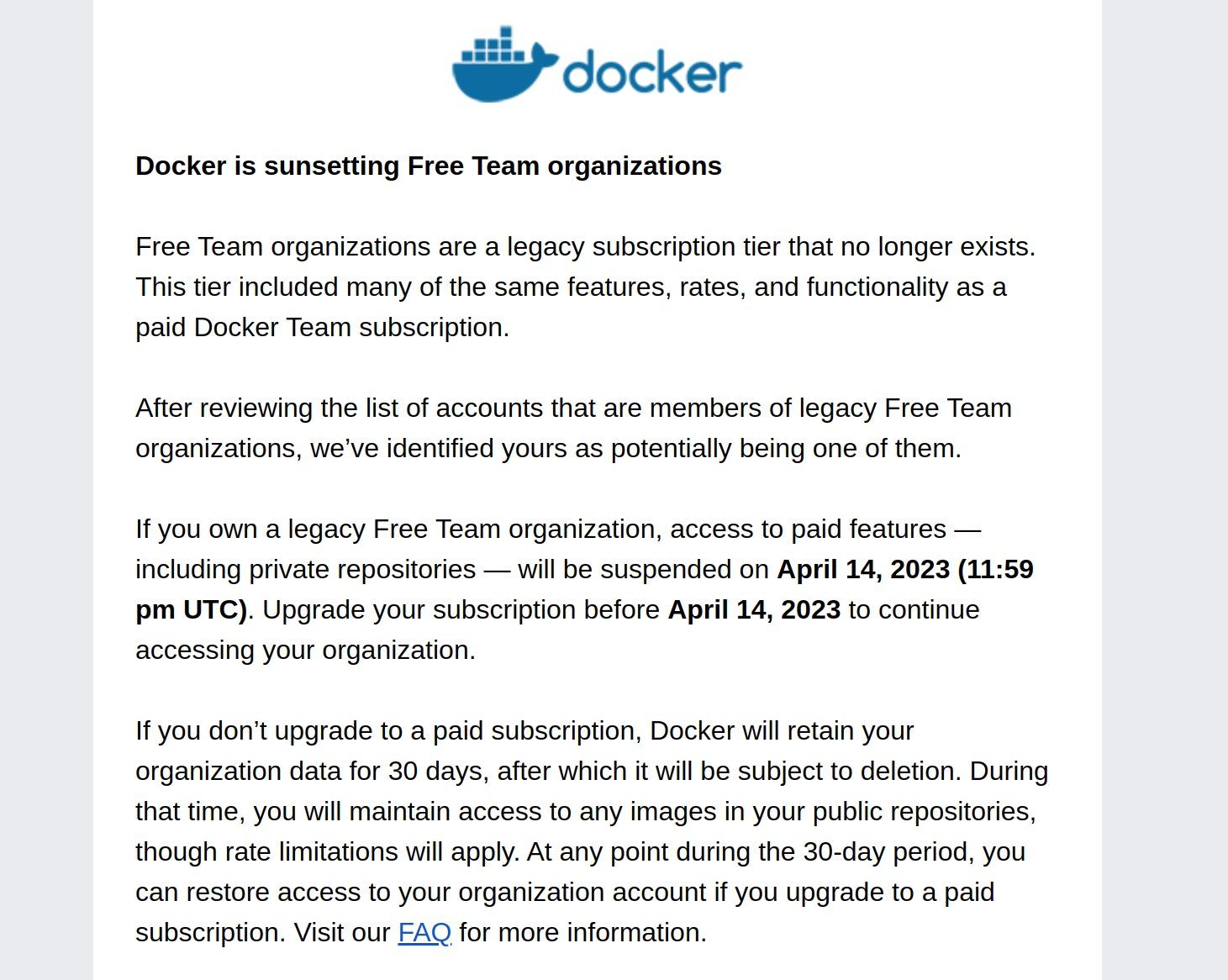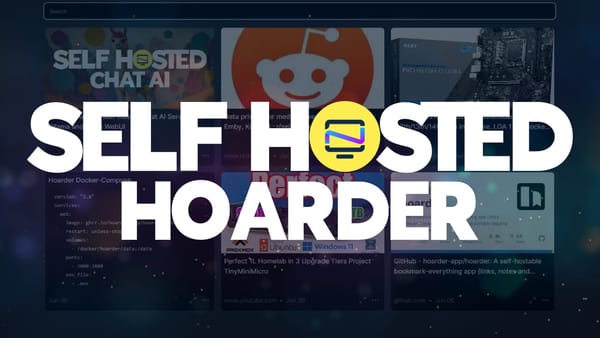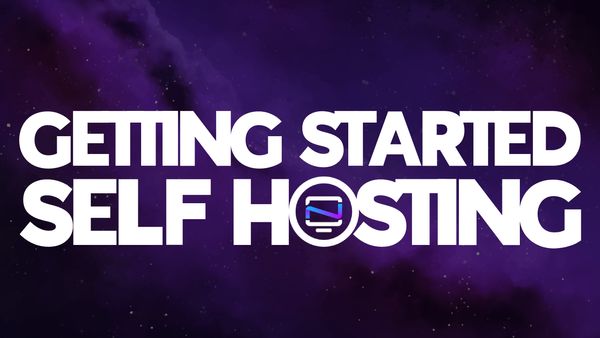Docker Hub's Free Accounts Deletion Sparks Open-Source Backlash
Docker has faced a backlash from the open-source community after informing users that their free accounts will be deleted if they don't upgrade to a paid plan, with accusations of Docker turning its back on the open source community that helped make it successful.

Earlier today, we were informed about a post making waves on Hacker News relating to Docker Hub pruning free accounts from their system. The website and original article can be seen here. I have summarized the article below in a kind-of TLDR fashion.
Docker has informed Docker Hub users that their free organizational accounts will be deleted if they don't upgrade to a paid team plan. The paid plans cost $420 a year (paid monthly). The users affected by this change are primarily open-source communities that have uploaded images to Docker Hub for years. The notification of the changes was sent in a tersely worded PDF, which was then edited in silence and without offering any further clarification on the matter. This caused significant anxiety and additional work for open source maintainers. The change has resulted in a hostile reaction from the open source community, which has accused Docker of being "out of touch".

Open-source projects often struggle with funding, making the cost of the organizational accounts an issue. Docker also has a definition of what it deems acceptable for its open-source program, which rules out projects that are not spare-time projects or those that have already been wholly donated to an open-source foundation. The move by Docker is seen as a way to monetize its userbase, which, in turn, has led to accusations of Docker turning its back on the open-source community that helped make it successful.
The change has also caused issues for projects that use Docker Hub; these issues include the potential for anyone to take over the images, and the publishing of malicious content. Docker has implemented unrealistic rate limits that mean any users who download from Docker Hub require a paid subscription. The rate limits have led many open source projects to switch to publishing open-source packages to GitHub's Container Registry in order to avoid the additional costs that come with using Docker Hub.
One potential workaround for open-source projects is to apply to Docker's "open-source" program, but this is only available to projects owned by foundations like the CNCF or Apache Foundation. Individual projects or those that have any source of funding or a way to achieve financial sustainability are ineligible. Docker's CTO has commented informally on Twitter that anyone who doesn't pay for the account will have it shut down with their organizational name being unavailable for anyone else. The lack of a clear, written commitment to this effect has also caused concern.
The change by Docker has highlighted the funding issues faced by the open source community, which is dependent on donations and sponsorships. Docker was originally an open source project, which makes it all the more disappointing for many in the community who feel that Docker has forgotten its roots.





